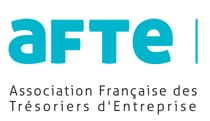 The leading European player in money market management, France, cannot remain indifferent to the new draft regulation released by the European Commission in early September. This draft bill on money market funds, which has yet to be submitted to the European Parliament and the Council, is one example of the interest the European Commission has taken in shadow banking in the wake of opinions issued by bodies such as the Financial Stability Board[1] and the International Organization of Securities Commissions.
The leading European player in money market management, France, cannot remain indifferent to the new draft regulation released by the European Commission in early September. This draft bill on money market funds, which has yet to be submitted to the European Parliament and the Council, is one example of the interest the European Commission has taken in shadow banking in the wake of opinions issued by bodies such as the Financial Stability Board[1] and the International Organization of Securities Commissions.
This draft, thoroughly examined in France, has raised a number of questions and led to significant criticism that seem to the AFTE largely justified. One may wonder, for example, why the Commission would choose to supplant the European Securities and Markets Authority (ESMA), which published recommendations back in May 2010, at the risk of muddying the waters and discrediting its own brainchild.
The time line adopted by the European executive is also surprising. The most recent rules to date, put forth by ESMA, took effect just over two years ago and have been soundly put into practice by the various stakeholders. Did the Commission wish to retake control of financial regulation, a field in which the European Union is often outpaced by the United States? Does it want to hasten the process in light of the European elections in May 2014 and the renewal of Commissioners in October 2014?
More fundamentally, it is reasonable to question why the Commission has put the spotlight on variable net asset value money market funds (the subject of recommendations in the draft text), while the rest of the world – including the United States, where they are the norm – suspects that constant net asset value money market funds (CNAV MMFs) harbour systemic risk. Could the militancy of CNAV fund advocates in Europe, especially the Institutional Money Market Funds Association (IMMFA), have an impact on French money market management?
Sign up for free to read the full article
Register Login with LinkedInAlready have an account?
Login
Download our Free Treasury App for mobile and tablet to read articles – no log in required.
Download Version Download Version




























